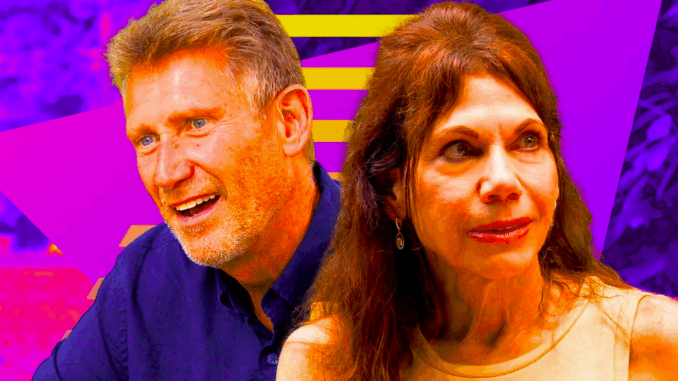
The Golden Bachelor wasn’t just a reality dating show. It was an emotional experiment — a televised meditation on grief, aging, vulnerability, and hope. As millions tuned in to watch Gerry and the contestants navigate love later in life, something deeper unfolded beneath the roses and romantic confessions.
This wasn’t just entertainment. It was storytelling that touched the human psyche in a profound way. Here’s why.
🧠The Psychology of Late-Life Love
Falling in love at 20 and at 70 are two entirely different experiences. By the time the men and women of The Golden Bachelor arrived on screen, many had already experienced lifelong commitments, the deaths of spouses, divorce, and years of singlehood.
Emotional Baggage — And Emotional Depth
While younger contestants often date for novelty or excitement, older participants bring history, reflection, and emotional complexity.
“You learn not just what you want in love, but what you can live without,” said contestant Faith in one interview.
These relationships are layered — less about lust, more about companionship, shared values, and spiritual peace.
💔 Grief and Love, Intertwined
One of the most powerful threads throughout the season was grief. Many contestants had lost lifelong partners. Some spoke of still wearing their wedding rings. Others admitted they hadn’t dated in decades.
And yet, here they were — saying yes to the possibility of loving again.
The Courage to Reopen the Heart
Psychologists often refer to “ambiguous grief” — the feeling of mourning something that’s ended but never fully goes away. That’s what many contestants were processing on air.
“It was scary,” said Ellen, whose husband passed away in 2015. “It felt like I was betraying him by being here. But I also knew he wouldn’t want me to be alone forever.”
This blend of grief and growth made for some of the most emotionally honest moments reality TV has ever shown.
💬 Why We All Saw Ourselves in the Contestants

Surprisingly, The Golden Bachelor drew not just an older audience, but viewers across generations. Why? Because its themes — love, regret, courage — are universal.
Vulnerability Without the Veneer
Unlike traditional Bachelor drama built on jealousy and theatrics, this cast led with emotional honesty. Tears were unfiltered. Laughter wasn’t performative.
“I think it reminded people of their parents, or grandparents — or what love might look like after life breaks your heart,” said a viewer on Reddit.
Whether you were 25 or 75, you could see your future self — or your past self — reflected onscreen.
🌟The Therapeutic Power of Storytelling
As researchers have shown, seeing your own demographic on screen in a positive, emotionally complex light can have a healing effect. It’s validation — proof that your story matters, even when youth fades.
For older viewers especially, The Golden Bachelor challenged the toxic idea that love is only for the young and the photogenic.
Hope as a Healing Force
In nearly every episode, hope was the underlying heartbeat. Not naïve hope — but mature, earned hope.
Hope that says:
-
You’re never too old to feel butterflies again.
-
You’re never too broken to be loved.
-
You’re never too late for a new chapter.
🧡 Final Thoughts: Why It Stays With Us
The Golden Bachelor didn’t just tweak the franchise — it expanded the definition of love stories on television. It wasn’t trying to shock us. It was trying to remind us that even after heartbreak, after decades, after loss… love can still knock.
And we can still answer.